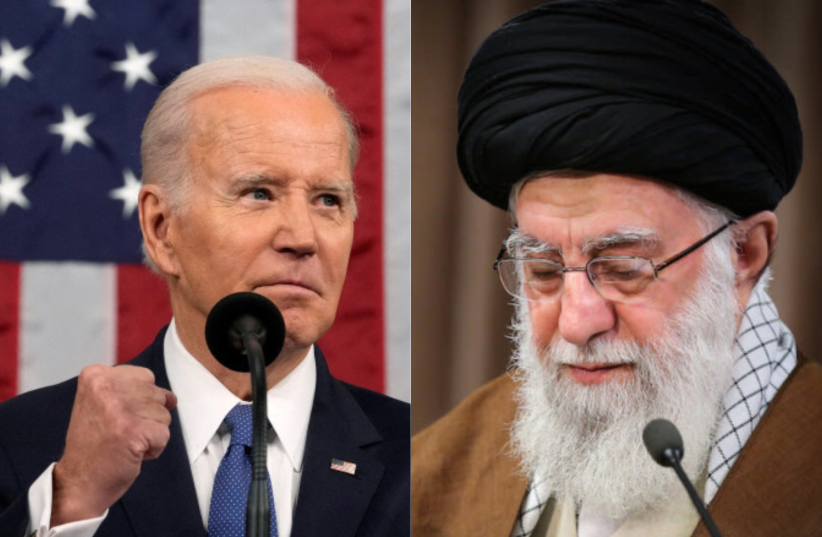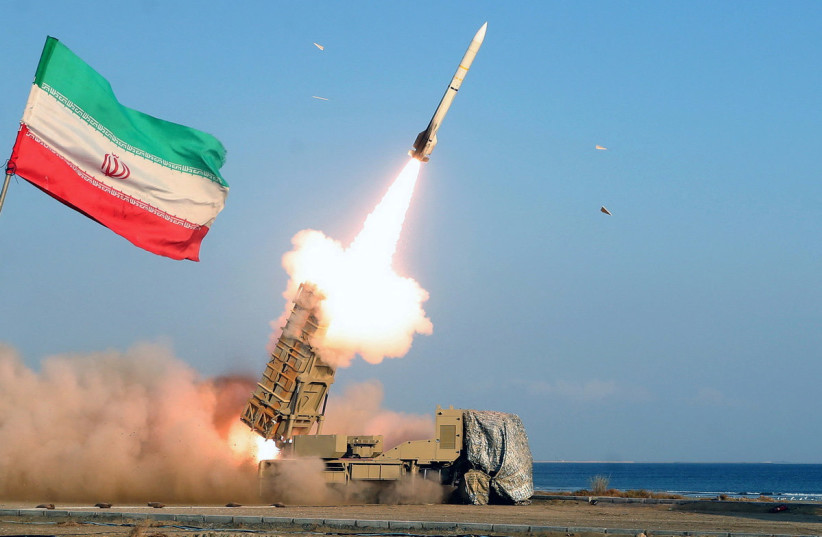The United States must prioritize identifying and neutralizing these covert networks to safeguard its national interests and ensure the security and well-being of its citizens.
EFRAN FARD OCTOBER 2, 2023 03:02

In recent times, reports about Iran’s influence and infiltration within the United States have come to light, revealing a complex and multifaceted network operating clandestinely within American borders. As an Iranian American familiar with the intricate dynamics and operations of the Iranian regime, these revelations hardly come as a surprise. The layers of this clandestine network are akin to the layers of an onion, each possessing distinct characteristics and objectives.
The depth and extent of the Iranian regime’s influence in the United States are disconcerting, spreading across various sectors of American society. This infiltration involves multiple facets, encompassing academic and scientific centers, commercial and financial institutions, religious and Islamic organizations, think tanks, and even the media associated with the US government. The complexity and sophistication of these networks have even bewildered the US intelligence community, comprising 16 different agencies.
While some security analysts within agencies like the CIA or FBI may have identified this issue, the predominant policy of appeasement and conciliation towards the Iranian regime within certain echelons of the American government inhibits decisive action.
A paradigmatic example of this is evident within the Pentagon, where individuals associated with this scandalous network retain their positions despite clear affiliations. This juxtaposition is akin to being an employee of the Syrian Defense Ministry and seeking authorization from Russian authorities to travel to Saudi Arabia, a glaring anomaly.
Moreover, the ideological alliances between elements of the Iranian regime, such as the Reformists and groups like the People’s Mojahedin Khalq (MEK), with certain factions within the American Democratic Party, are not merely speculative but substantiated by evidence.

Revelations from various sources, including recent emails, provide insights into the extent of influence and allegiance between certain American officials and the Iranian regime. Such interactions have been further substantiated by disclosures made by former American officials in their memoirs, underscoring the pervasive nature of this infiltration.
Security scandal raises alarming concerns
This security scandal raises alarming concerns about the manipulation of American public opinion and policy-making by the Iranian regime. The informational and ideological framework propagated by the Information Ministry of the Islamic Republic of Iran has been disseminated effectively through this clandestine network within the United States.
This influence has the potential to shape American policies, impacting critical decisions that affect national security.
The harrowing reality of Iran’s infiltration into the heart of American society is a cause for immediate and serious concern. The covert activities orchestrated by the Iranian regime within the United States present an imminent threat that demands urgent attention from the US intelligence community. The presence of apologists, pro-regime influencers, propagandists, clandestine agents, and sleeper cells poses a direct threat to US national security under any circumstance.
It is imperative to acknowledge and address this critical security issue promptly. The United States must prioritize identifying and neutralizing these covert networks to safeguard its national interests and ensure the security and well-being of its citizens. The gravity of this infiltration necessitates a comprehensive and coordinated response, with all relevant stakeholders collaborating to mitigate this growing threat effectively.
The writer is a counter-terrorism analyst and Middle East studies researcher based in Washington, DC. He is a Jewish Kurd of Iran. His newly published book is The Gruesome Mullah, published in the US. Follow him on X (formerly known as Twitter) @EQFARD.
Content retrieved from: https://www.jpost.com/opinion/article-761232.